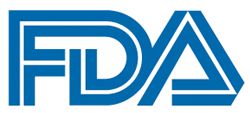Cemiplimab Receives Priority Review from FDA for Patients with CSCC
A priority review has been granted by the FDA to a biologics license application (BLA) for the PD-1 inhibitor cemiplimab as a treatment for patients with metastatic cutaneous squamous cell carcinoma (CSCC) or those with locally advanced CSCC not eligible for surgery.

A priority review has been granted by the FDA to a biologics license application (BLA) for the PD-1 inhibitor cemiplimab as a treatment for patients with metastatic cutaneous squamous cell carcinoma (CSCC) or those with locally advanced CSCC not eligible for surgery.
Based on the results from the phase II EMPOWER-CSCC 1 study (NCT02760498), the BLA was submitted with an overall response rate (ORR) of 46.3% in patients with advanced CSCC. Supporting data was also included from 2 expansion cohorts, submitted by Regeron and Sanofi, codevelopers of cemiplimab. In a statement, these companies announced the updated data from these phase I and II studies will be shared at the 2018 ASCO Annual Meeting.
Cemiplimab has received an FDA breakthrough therapy designation in treatment of patients with CSCC. The FDA plans to make a decision by October 28, 2018, on the BLA.
The ongoing, single-arm, open-label EMPOWER-CSCC 1 study reported an ORR for 82 patients. Two-thirds of these patients progressed following a systemic chemotherapy or radiation treatment.
One of the 3 cohorts was fully enrolled, including patients with metastatic CSCC who received 3 mg/kg of cemiplimab every 2 weeks. The other 2 cohorts that are currently enrolling include patients with metastatic CSCC assigned to a 350-mg flat dose of cemiplimab every 3 weeks and a group with locally advanced and unresectable CSCC to receive 3 mg/kg of cemiplimab every 2 weeks.
There were 32 of 38 ongoing responses at the data cutoff and the median duration of response had not been reached. There was also a minimum follow-up of 6 months. Cemiplimab has a safety profile similar to other approved PD-1 inhibitors.
Results from the phase I trial of patients with advanced CSCC were shared at the 2017 ASCO Annual Meeting. This covered data from 26 ptients across 2 expansion cohorts where patients were assigned to receive 3 mg/kg of cemiplimab every 2 weeks for 48 weeks. Of these patients, 10 had metastatic disease and 16 has locally advanced disease.
Per the investigator assessment at the data cutoff date of April 27, 2017, the preliminary ORR was 46.2% (95% CI, 26-6-66.6). A complete response was found in 2 patients (7.7%) with locally advanced disease, while 10 patients (38.5%), 6 with metastatic disease and 4 with locally advanced disease, had partial response, including 1 unconfirmed partial complete response. Six patients (23.1%) had stable disease and 6 others had progressive disease. There was a disease control rate of 69.2% (95% CI, 48.2-85.7).
The most common (>10%) any-grade treatment-emergent adverse event (TEAE) was fatigue (23.1%). Single incidences reported included arthralgia, maculopapular rash, asthenia, AST elevation, and ALT elevation.
Only 2 patients discontinued due to toxicity: an 88-year-old woman who developed grade 3 rash after 3 doses and an86-year-old man who withdrew consent after experiencing grade 3 transaminase elevation and grade 2 fatigue after 6 doses.
While these patient deaths were not attributed to cemiplimab, 2 patients did not survive 30 days after of the final dose.
Reference:
Papadopoulos KP, Owonikoko TK, Johnson ML, et al. REGN2810: A fully human anti-PD-1 monoclonal antibody, for patients with unresectable locally advanced or metastatic cutaneous squamous cell carcinoma (CSCC)Initial safety and efficacy from expansion cohorts (ECs) of phase I study. J Clin Oncol 35, 2017 (suppl; abstr 9503)
Tawbi Discusses the Role of Brain Metastases and PD-L1 Status in Melanoma
September 11th 2024During a Case-Based Roundtable® event, Hussein A. Tawbi, MD, PhD, and participants look at benefits of nivolumab combinations for brain metastases and PD-L1 positivity in the metastatic melanoma population in the second article of a 2-part series.
Read More